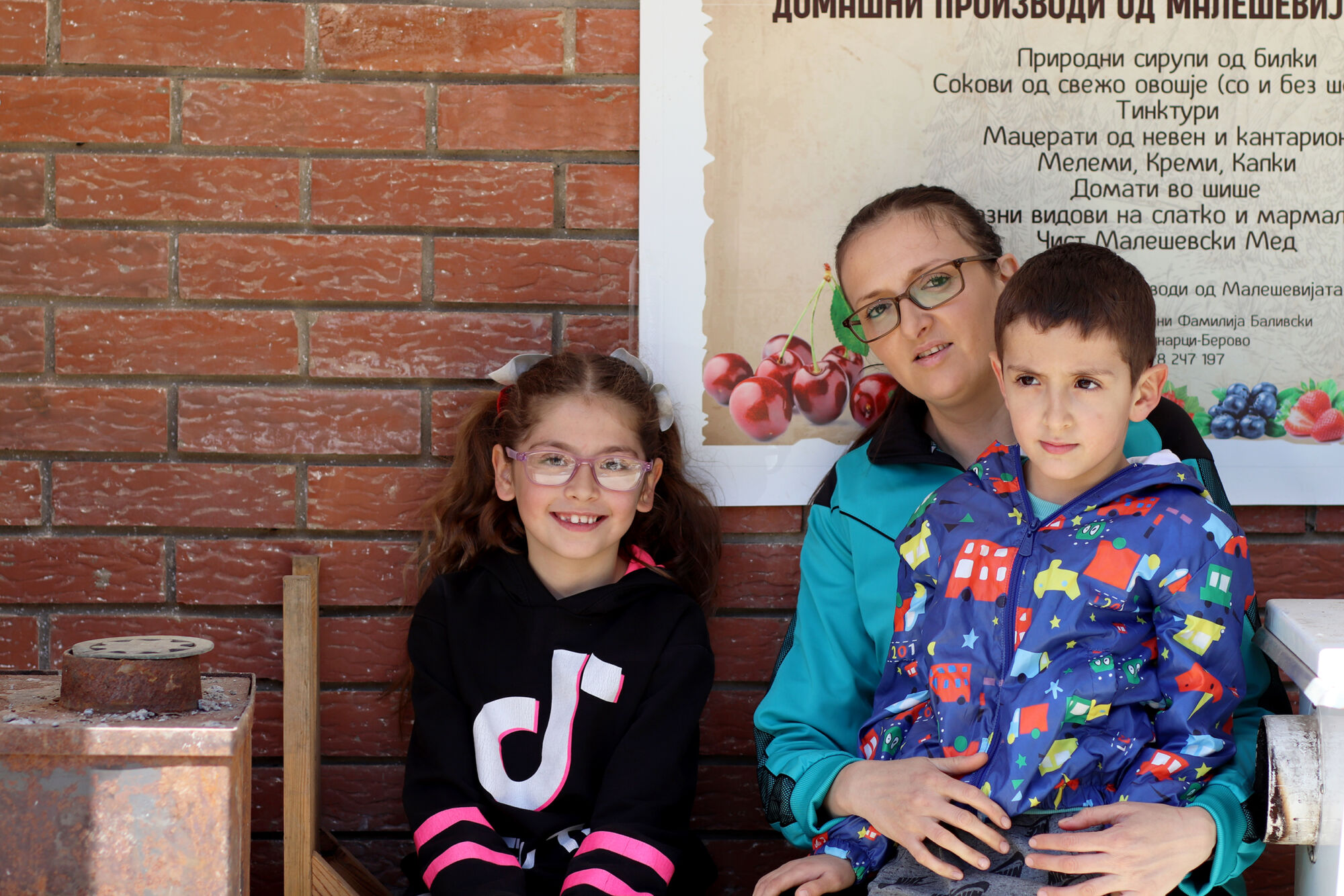“When you are in the tight and struggling, this suffering will teach you everything. You will learn how to do things fast. That’s how I started,” farmer, recently turned entrepreneur Irena Balivska recalls her difficult beginnings.
Both her and her husband Vancho were unemployed and only relying on subsistence farming when their baby daughter came into the world. With her in-laws, they were working the fields cultivating grains, fruits and vegetables, such as tomatoes, peppers, cucumbers, beans, onions etc. But apart from putting food on the table nothing extra was left to cover their other needs.
It was clear to Irena that she had to act. “I said to myself, I have to try, so I started with the pickled cherry peppers stuffed with cottage cheese and that’s the only thing I did for two years,” she says, recalling her surprise at the amount of interest that this caused among her neighbours in the village of Budinarci, but also among other interested buyers.
The sale really took off when she decided to create her own page on social media and advertise her products online.
“Now I have 17 000 online followers and satisfied customers,” says Irena, happy that her page continues to spark a significant interest among the population interested in healthy lifestyle, since Berovo region where she comes from, is known as the ecologically cleanest region in the country from where quality organic products come from.
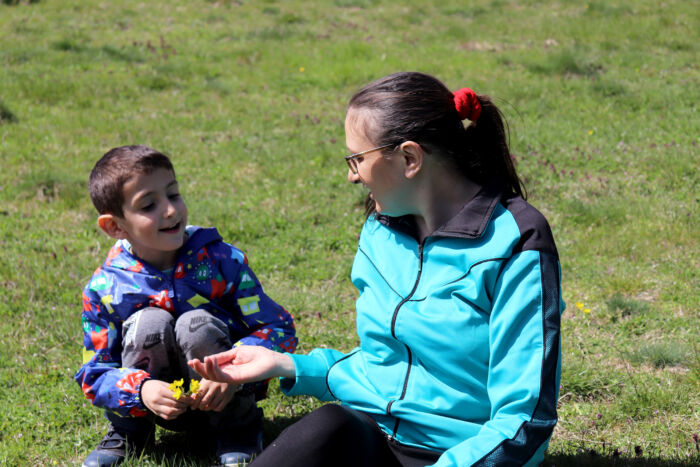
Apart from the vegetables grown in her garden, whose surplus she sells, now she also produces other pickled food, jams and juices, as well as syrups and tinctures from forest plants with healing properties, such as solutions from pine, chestnut, acacia, dandelions, nettles, elderberry, mint, bay leaf, sage, primrose, wort, marigold etc.
“My grandmother taught me about the plants, but also my father. We would pick forest plants and other plants with healing properties, and we would sell them to tea traders. But now I process them myself, using the old traditions and wisdom that I learned from both of them,” says Irena.
This is the main business that she and her family now make their living from. Of course, Irena runs the business.
“It’s not an easy work, being a farmer and also an entrepreneur. And then, there are the children. You need to dedicate yourself to them and their needs. Even if their grandmother or someone else can look after them for a while, they still want their mother,” Irena laughs.

Her daily routine starts at six o’clock in the morning, preparing her nine years old daughter Elena and six years old son Aleksej for school and kindergarten. After that, the work in her small workshop begins, making products as well as sending shipments to customers. Depending on the season and the type of plants, she then goes to the nearby forest and meadows to collect some more fruits and plants. Along with the household chores and the arrival of the children from school, little time is left for rest.
“It’s hard but I love doing this. I enjoy working with the plants, learning about them and also teaching my children about them. My daughter is actually very curious about the plants. Sometimes I take the children with me to the forest. They play around me, but they also help me sometimes,” says Irena adding that they are most excited when they can go with their grandfather to a higher up meadow to collect wild strawberries.
“There is no greater motivation to do something than for your children. When you see your children, you want to give them everything that this world has to offer. The children are my motivation. Of course, I am doing this for them, so they can have a better childhood and better life,” says Irena.
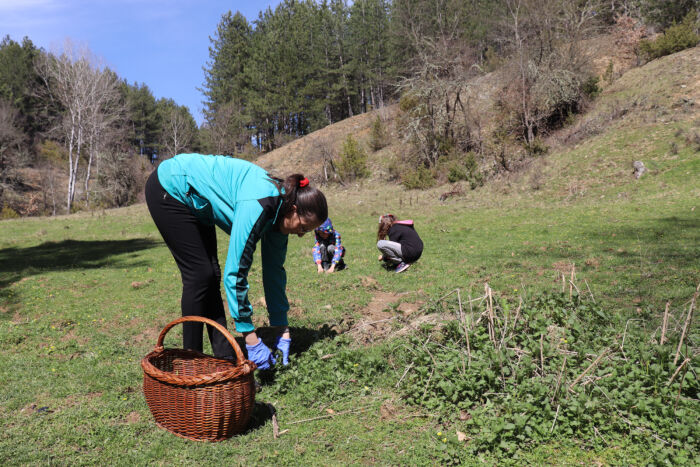
Everyone in the family supports her and everyone has a special role. Her husband mostly helps with the harvesting and the transport of products to customers, while the grandparents maintain the vegetable garden and help with the care for the children. The children’s chores on the other hand consist of taking care of the little goats on their family farm, sometimes feeding the chickens and turkeys and collecting the eggs.
“They are bigger now, so it’s easier,” says Irena. She recalls the time when both of the children were small and apart from her family, she could not lean on any other type of support.
“Just recently, the National Federation of Farmers – NFF, whose member I am, managed to win a great battle for us – the rural women, by ensuring a paid maternity leave for registered women farmers. It is a huge success for us,” says Irena adding that the paid maternity leave will help a lot because it will ease the burden of the rural women.
“Now, the rural women will not have to work in the fields and earn money at the same time while taking care of a small baby at home,” says Irena.
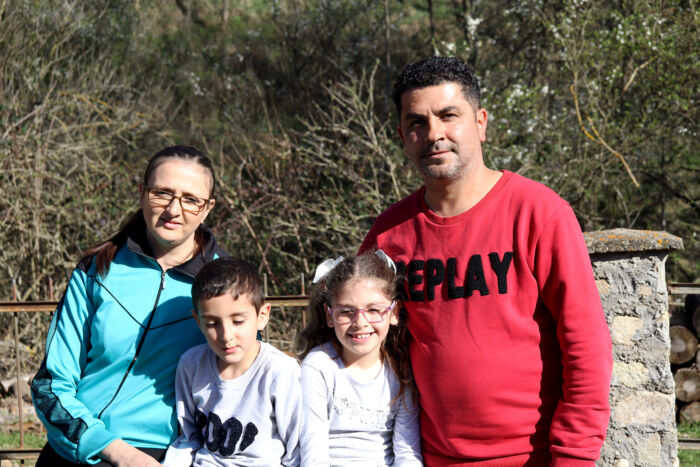
According to her, this measure will motivate many more rural women to register their work in agriculture and benefit from all state’s measures.
The pilot program for paid maternity leave, that came as a result of the great advocacy work of We Effect and partner organisation NFF, is being implement through the Ministry of Agriculture of North Macedonia and it enables nine months of paid maternity leave for the registered rural women, same as for all other employed women in the country.
According to Irena, the women in the rural areas also face many other challenges. “Our schools are before closure. In search for a better life the people are leaving the villages, either for the bigger cities or they go abroad. Those of us who stay, we have to take our children to schools in the nearby bigger cities,” she says, emphasizing that the infrastructure in the villages is awful and they also don’t have many opportunities to directly sell their farming products anywhere nearby.
“The municipalities and the local authorities should be more engaged in finding solutions to our problems and opening new business opportunities, but so far we receive greater support only from NFF,” says Irena.
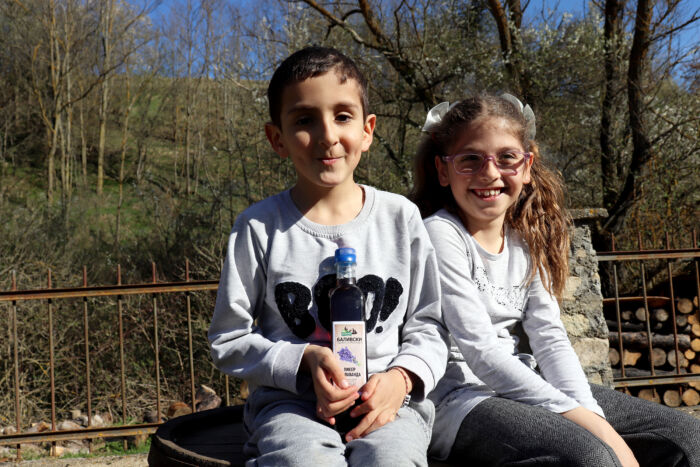
We Effect’s partner organisation in the country, apart from advocating for the major issues of relevance to framers is also supporting farmers like Irena with access to information, networking among farmers and collaborations, providing various trainings for them, organising fairs on which they can sell their products etc.
“Since I am a member of NFF, through all of the activities I participate in, the people are getting to know me better and I also reach more customers. My business is growing, and I am proud of what I have achieved so far,” says Irena.
Of course, as she says, her children are always in the focus of her work and everything that she is doing. “I want to teach them to the right values. I want them to be hardworking and good people. This business is for them. I hope they continue where we stopped.”

